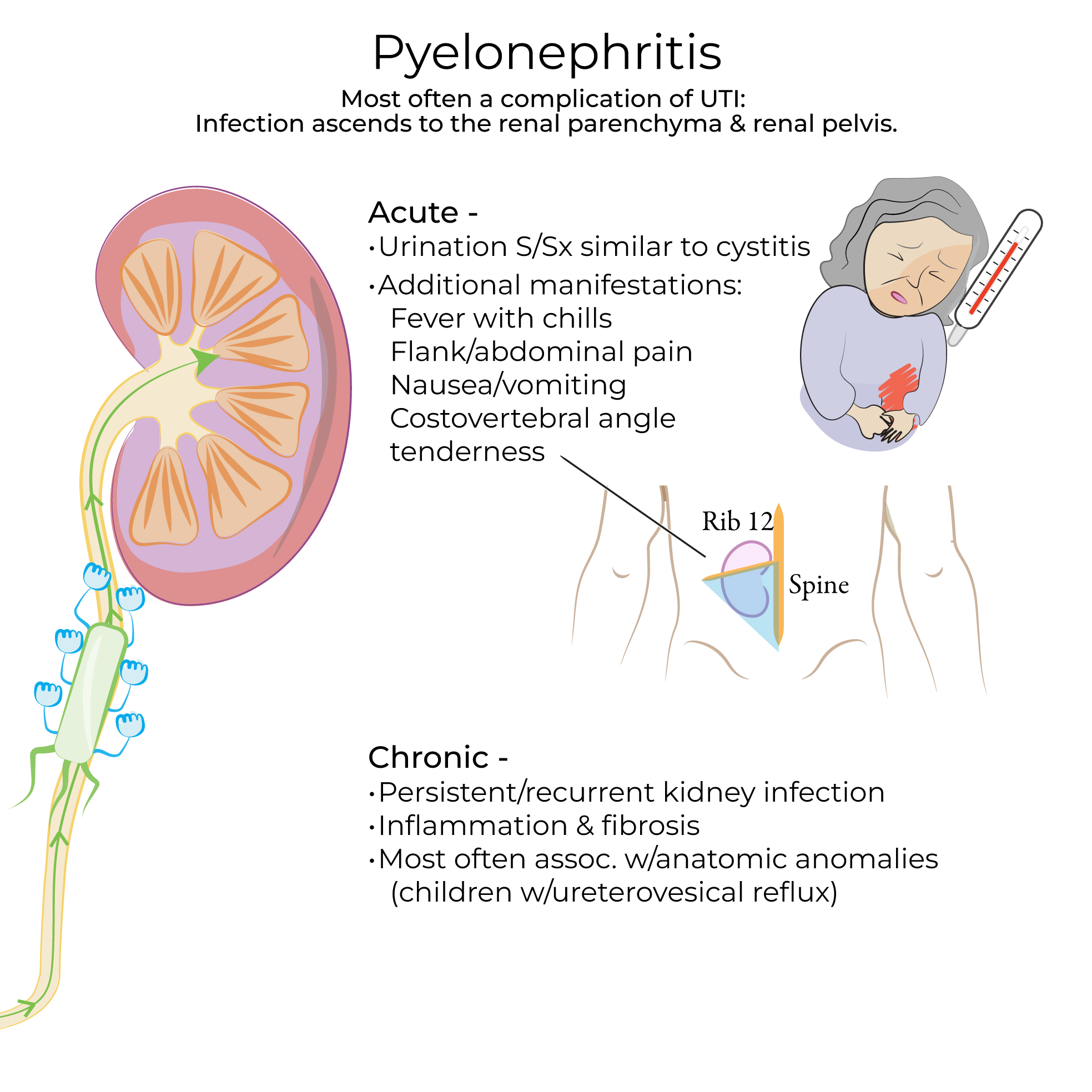
Start your One-Week Free Trial
Already subscribed? Log in »
Pyelonephritis
Acute Pyelonephritis
SIGNS & SYMPTOMS:
Frequent, urgent urination with burning sensation.
Fever with chills, flank and abdominal pain, nausea and vomiting, and tenderness in the costovertebral angle – this is the area between the 12th rib and the spine, posteriorly, where the kidney sits.
Hospitalization indicated when patients cannot maintain oral hydration, have persistently high fever (101 degrees F or higher), signs of toxicity, sepsis, or immune compromise.
May have history of recent urinary tract infection.

TOP BACTERIAL CAUSES
E.coli, Proteus, Klebsiella, Enterobacter, Pseudomonas, E. faecalis, S. aureus.
Read more about bacterial causes of urinary tract infections.
LAB FINDINGS
Complete blood cell count: Leukocytosis
Urinary analysis: pyuria, bacteriuria, hematuria. Possible white cell casts.
Urine culture: causative pathogen.
TREATMENT
Hospitalized - IV for 14 days:
- Ampicillin, Ceftriaxone, Ciprofloxacin
- Ceftriaxone, Ciprofloxacin, Gentamicin
- Ciprofloxacin (2x day/7 days)
- Levofloxacin (1x day/5 days)
- Trimethoprim-sulfamethoxazole (2xday/14 days)
Chronic Pyelonephritis
